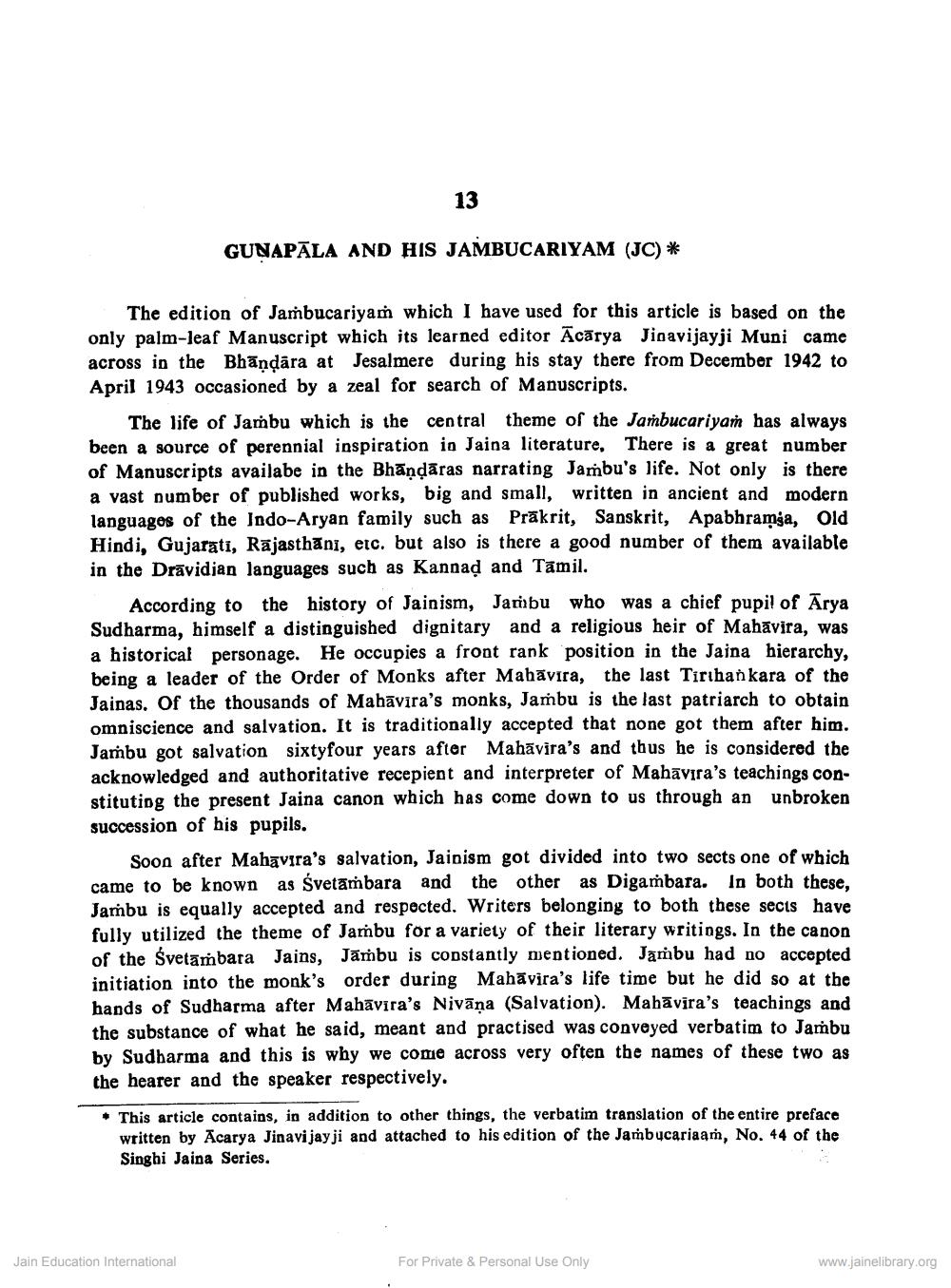________________
13
GUNAPĀLA AND HIS JAMBUCARIYAM (JC) *
The edition of Jambucariyam which I have used for this article is based on the only palm-leaf Manuscript which its learned editor Ācārya Jinavijayji Muni came across in the Bhāndāra at Jesalmere during his stay there from December 1942 to April 1943 occasioned by a zeal for search of Manuscripts.
The life of Jambu which is the central theme of the Jambucariyam has always been a source of perennial inspiration in Jaina literature. There is a great number of Manuscripts availabe in the Bhāņdāras narrating Jambu's life. Not only is there a vast number of published works, big and small, written in ancient and modern languages of the Indo-Aryan family such as Prākrit, Sanskrit, Apabhramga, Old Hindi, Gujarati, Rajasthāni, etc. but also is there a good number of them available in the Drāvidjan languages such as Kannad and Tamil.
According to the history of Jainism, Jaribu who was a chief pupil of Arya Sudharma, himself a distinguished dignitary and a religious heir of Mahavira, was a historical personage. He occupies a front rank position in the Jaina hierarchy, being a leader of the Order of Monks after Mahavira, the last Tirihan kara of the Jainas. Of the thousands of Mahāvīra's monks, Jambu is the last patriarch to obtain omniscience and salvation. It is traditionally accepted that none got them after him. Jambu got salvation sixtyfour years after Mahāvira's and thus he is considered the acknowledged and authoritative recepient and interpreter of Mahavira's teachings constituting the present Jaina canon which has come down to us through an unbroken succession of his pupils.
Soon after Mahavira's salvation, Jainism got divided into two sects one of which came to be known as Svetāṁbara and the other as Digambara. In both these, Jambu is equally accepted and respected. Writers belonging to both these sects have fully utilized the theme of Jambu for a variety of their literary writings. In the canon of the Svetambara Jains, Jambu is constantly mentioned. Jambu had no accepted initiation into the monk's order during Mahāvira's life time but he did so at the hands of Sudharma after Mahavira's Nivāņa (Salvation). Mahāvira's teachings and the substance of what he said, meant and practised was conveyed verbatim to Jambu by Sudharma and this is why we come across very often the names of these two as the hearer and the speaker respectively.
This article contains, in addition to other things, the verbatim translation of the entire preface written by Acarya Jinavijayji and attached to his edition of the Jambucariaam, No. 44 of the Singhi Jaina Series.
Jain Education International
For Private & Personal Use Only
www.jainelibrary.org




